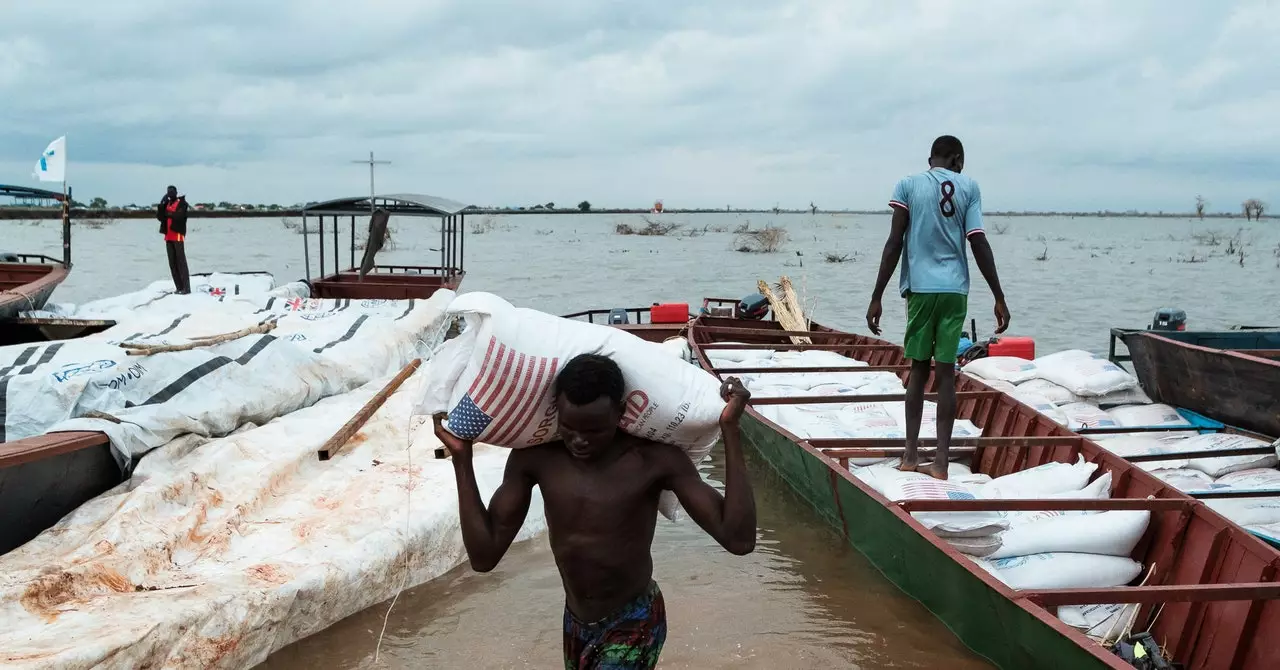The Famine Early Warning Systems Network (Fews Net) serves as an essential component in the global fight against food insecurity. Established to provide timely and vital information regarding potential food crises, Fews Net operates under the auspices of the U.S. Agency for International Development (USAID) and collaborates with multiple federal bodies to optimize humanitarian aid distribution. As a network adept at forecasting food shortages, it considers a myriad of ecological, economic, and geopolitical variables, showcasing a sophisticated approach to predicting famine and other crises that may arise from food insecurity.
Fews Net does not merely analyze simple indicators like weather patterns or crop yields. Instead, it delves into a broad spectrum of variables, assessing risks from environmental disasters such as drought or pest infestations, like locust swarms, that can jeopardize agricultural output. By utilizing advanced technologies, including satellite imagery and artificial intelligence, the network predicts not only where food shortages will likely occur but also the underlying economic and social implications of those shortages.
One of Fews Net’s notable strengths lies in its use of innovative technological methods to foster accurate predictive capabilities. The integration of artificial intelligence allows for the analysis of complex datasets, helping to gauge the likelihood of political unrest or conflict that could arise from famine conditions. Furthermore, Fews Net meticulously monitors markets and local household economies, thus creating a more nuanced understanding of how food insecurity can propagate economic distress within a community.
Incorporating data from remote sensors and satellites, Fews Net evaluates a diversity of factors impacting agriculture, from rainfall metrics to land surface temperatures. These multifaceted analyses enable stakeholders to make informed decisions on where to direct humanitarian efforts, ensuring that aid is allocated efficiently and effectively in the most vulnerable regions.
While the humanitarian contributions of Fews Net are significant, its operation is deeply intertwined with U.S. foreign policy objectives. Experts like historian Christian Ruth assert that while the network aims to alleviate suffering from food shortages, it also serves a broader agenda within U.S. governance frameworks, particularly in relation to national security.
Food insecurity has historically been linked to social instability, and the consequences of neglecting these precursory warnings can be dire. For instance, the drought in Syria during the late 2010s not only triggered widespread agricultural failure but also catalyzed significant migration—an outcome that eventually contributed to intense civil conflict. Such events underline the ramifications of food crises that transcend mere humanitarian concerns, influencing international relations and domestic security matters.
Cutting funding for Fews Net, as threatened by various government agencies, could exacerbate the challenges faced by communities vulnerable to famine while ultimately undermining U.S. objectives related to border security. When anticipating large migratory flows caused by worsening food conditions, it becomes evident that preventive monitoring and humanitarian response are preferable to reacting to crises post-factum.
The implications of potential funding disruptions for Fews Net reach far beyond the deterioration of data analysis capabilities. Laura Glaeser, a veteran in humanitarian food aid, emphasizes the critical nature of Fews Net’s role in aiding the targeted allocation of resources. If the network’s analyses are stymied, the efficiency with which U.S. funding is deployed could suffer significantly. Glaeser warns that this could lead to inefficient aid responses, thereby expanding the scope of humanitarian crises.
Furthermore, a reduction in collaborative efforts between Fews Net and other federal agencies, such as NASA and NOAA, poses additional challenges. The disintegration of these partnerships threatens to dismantle an integrated system that relies on shared data and expertise critical for timely intervention in famine situations.
In sum, Fews Net stands as a beacon of hope amidst the growing challenges of food insecurity across the globe. Its proactive approach, grounded in sophisticated analysis and inter-agency collaboration, is instrumental not only in addressing immediate humanitarian crises but also in mitigating the broader social and political ramifications of hunger. As debates surrounding funding cuts and resource allocations continue, it is essential that decision-makers recognize the indispensable role of Fews Net in fostering stability and security on both a national and global scale. Supporting such initiatives is not merely an act of humanitarianism; it is an investment in a more secure, stable future for all.

